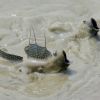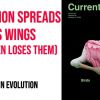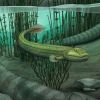-
 +2 +1
+2 +1No, You Don't Have a "Reptilian Brain"
-
 +28 +3
+28 +3Human culture is changing too fast for evolution to catch up – here’s how it may affect you
Human culture has changed too fast for evolution to keep up. A theory that can help explain why we respond poorly to modern conditions, despite the choices, safety and other benefits they bring, is evolutionary mismatch.
-
 +26 +4
+26 +4Autoimmune Diseases Are Sexist. Here’s Why.
-
 +39 +10
+39 +10Missing 'Law of Nature' Found That Describes The Way All Things Evolve
Complex, evolving systems abound in our Universe, even beyond the realms of biology.
-
 +44 +7
+44 +7Female Cockroaches Hate Romance (And It’s Our Fault)
1 comments by Gozzin -
 +44 +7
+44 +7The Lizard's Tale 105: Island Test Tubes, Part 1
-
 +36 +6
+36 +6How 2 Teens Accidentally Solved Charles Darwin's Most Vexing Problem
In 1956, a teenage girl by the name of Tina Negus was summering in the United Kingdom's Charnwood Forest with her family, when she noticed a curious imprint on an overhanging rock face.
-
 +34 +4
+34 +4The weirdness of youtube's algorithm
So, do thousands of fundamentalists watch plate tectonics videos and then want to listen to hymns? WTF?
5 comments by kxh -
 +29 +4
+29 +4Masturbating is healthy and an evolutionarily strategic mating tactic
Masturbation comes with a variety of health benefits that help all primates – even humans – survive and thrive, and may have helped our species evolve, according to a British study. Indeed, the practice of masturbation is something seen throughout the animal kingdom, though it is most widely associated with humans. However, the researchers behind this study believe that it is also something likely present throughout humanity's evolutionary history, present in the last common ancestor of humans, monkeys, and apes.
-
 +22 +3
+22 +3Marsupials Are 'Far More Evolved' Than Other Mammals, Even Humans
A new study challenges the idea that marsupials are more 'primitive' than mammals by showing their development has changed more than mammals since they last shared an ancestor.
-
 +14 +1
+14 +1A blinking fish reveals clues as to how our ancestors evolved from water to land
An unusual blinking fish, the mudskipper, spends much of the day out of the water and is providing clues as to how and why blinking might have evolved during the transition to life on land in our own ancestors. New research shows that these amphibious fish have evolved a blinking behavior that serves many of the same purposes of our blinking.
-
 +14 +2
+14 +2Women carry babies for lower energetic cost than men, study finds
A new study examining how much energy males and females spend carrying babies in different positions reported that women expend less energy carrying their babies than men in all carrying positions. Carrying a baby on one’s back was the most energy efficient and people carrying babies this way were able to maintain their unloaded walking speeds. The study was published in Evolutionary Human Sciences.
-
 +23 +3
+23 +3The Bizarre Evolution of Hemipenes (yes...hemipenes.)
-
 +12 +1
+12 +1Beyond Human: A Billion Years of Evolution and the Fate of Our Species
Our lifespans might feel like a long time by human standards, but to the Earth it's the blink of an eye. Even the entirety of human history represents a tiny slither of the vast chronology for our planet. We often think about geological time when looking back into the past, but today we look ahead. What might happen on our planet in the next billion years?
-
 +24 +2
+24 +2Scientists still don't know why we have pubic hair
But they have some very compelling theories
-
 +23 +2
+23 +2The Dinosaurs Didn't Go Extinct in a Day (They Didn't Go Extinct At All...)
-
 +14 +2
+14 +2Crabs Aren't The Only Things Evolution Keeps Making. An Expert Explains.
Charles Darwin believed evolution created "endless forms most beautiful".
-
 +18 +5
+18 +5Extracting Hominin Evolution From Fossilized Teeth
Two scientists explain how analyses of oxygen isotopes from ancient ape teeth could lead to new insights on early human evolution.
-
 +16 +1
+16 +1TWiEVO 83: Evolution spreads its wings (and then loses them)
-
 +3 +1
+3 +1A fish that evolved to stand up on land went back to living in water
A scaly, finned creature that lived in water 385 million years ago descended from four-legged land animals, in a clear example of a “backward” step in evolution.
Submit a link
Start a discussion




















